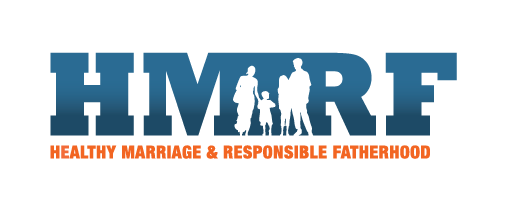Reflections
Although the empirical evidence is limited and formative, the articles summarized here provide some important contextual information and promising program approaches to support youth as they develop the knowledge, skills, and confidence needed to build strong, supportive relationships and intimate connections. The majority of studies were based on focus groups and interviews with youth. Youth were interviewed about their knowledge and skills in relational competence; relationship status, stressors, and challenges; dating violence; social support; overall well-being; and relationship and fertility goals and milestones. Descriptive studies also addressed the well-being of youth, either at the time of the study or earlier in their lives, and examined their educational, employment, fertility, and socio-emotional outcomes during the transition to young adulthood. The articles summarized here identified both areas in which we have a depth of information and areas where more research is needed.
Importance of research funding initiatives
We found articles on programs for only three groups of youth included in our search: those transitioning out of foster care, pregnant and parenting teens, and youth involved in the criminal justice system. No articles were found for youth who are homeless or who have experienced homelessness. The research included was aligned with funding allocated for prominent public health concerns (e.g., dating violence, early childbearing and marriage) or social policies (e.g., extended access to services for youth aging out of the foster care system); this highlights the importance of federal government initiatives in addressing urgent social issues and advancing the research.
Need for longitudinal, prospective research
Few of the identified studies have longitudinal, prospective data observing youths’ development of relationship skills and patterns in these relationships over time. The field would benefit by conducting more studies that follow youth over time, starting in early adolescence, to capture information about how and when relationship skills develop, along with how and when to intervene to support the development of healthy relationships.
Lack of rigorous program evaluations
Practitioners seeking to implement evidence-based programs that are supported and validated by rigorous outcome evaluations will be challenged, because no resource met this threshold. Only seven of the 26 studies included in this bibliography explored program outcomes; of those, only three randomly assigned youth to relationship programs or control conditions (the gold standard for program evaluation). All three programs that used randomized control designs considered their work formative and not ready for dissemination beyond pilot testing sites.
Limited information on implementation
There was little research on how to effectively implement relationship education with populations of youth who have faced adversity. One article discussed the challenges of following up with youth who are difficult to track because of their transiency.8 Another study noted the difficulties in engaging these populations, many are whom are overwhelmed with stress and prioritizing their basic needs (e.g., housing, jobs, health care, parenting) over relationship skill-building.9 More research is needed to understand the best ways for programs to recruit, engage, and retain these populations long enough to deliver a sufficient dosage. Additionally, more work is needed to identify innovative and flexible program designs that support youth, most of whom face barriers to program participation such as lack of transportation, child care, and money; additionally, most of these youth are not enrolled in traditional schools and are harder to recruit.
Need for trauma-informed programming
Trauma-informed programs for youth are urgently needed. Most youth described in the reviewed studies had experienced some form of interpersonal trauma, including physical or sexual abuse or neglect; parental absence due to addiction, mental illness, or incarceration; and lack of consistent role modeling and social support due to caretaker or residential instability. Trauma-informed relationship education is needed both to support healing from past trauma and to learn and enhance interpersonal skills and emotional regulation.
Addressing healthy and unhealthy relationship behaviors
A substantial proportion of the articles identified focused on preventing or reducing dating or intimate partner violence. Because the populations of youth included in this annotated bibliography are at high-risk for intimate partner violence (IPV),10 the prevalence of such articles is encouraging. Findings from this review suggest that relationship education should provide more than basic skills training (e.g., communication, conflict resolution), but should also help youth identify signs of harmful relationships, seek help, and safely exit dangerous relationships.
Programming for diverse racial and ethnic populations
A continued gap in the field is the lack of articles that discuss programs relevant to specific racial/ethnic and cultural groups. No programs identified in this review were designed for American Indian/Alaska Native, Pacific Islander, or Asian youth. Although some programs studied served a high proportion of Black/African American youth, there was little mention of how HMRE programs could support Black/African American youth facing circumstances such as racial discrimination and structural inequities.
Diverse intervention types
The review of the studies in this annotated bibliography shows that there is no “one size fits all” approach to relationship education programming. Structure, content, and delivery needs were tailored to the particular subpopulation being studied. Relationship education occurred through varied means, including a manualized curriculum, support groups, adult coaching, a standalone program, or services integrated into youth-serving agencies or organizations. Future research should explore which delivery mechanism(s) works best for which subpopulations, and how to design flexible menus of service options to fit youths’ unique needs.
Footnotes
a Relationships, Education, Advancement, and Development for Youth for Life (READY4Life).back to text
b This term is distinct from “adverse childhood experiences (ACEs)” often examined in research. ACEs describe a specific set of traumatic events (e.g., growing up in a household with violence or substance abuse) that occur before age 18.7 back to text
c We used the key term “vulnerable youth” to search for articles and resources since this term is commonly used in existing literature.back to text
Read the full annotated bibliography




